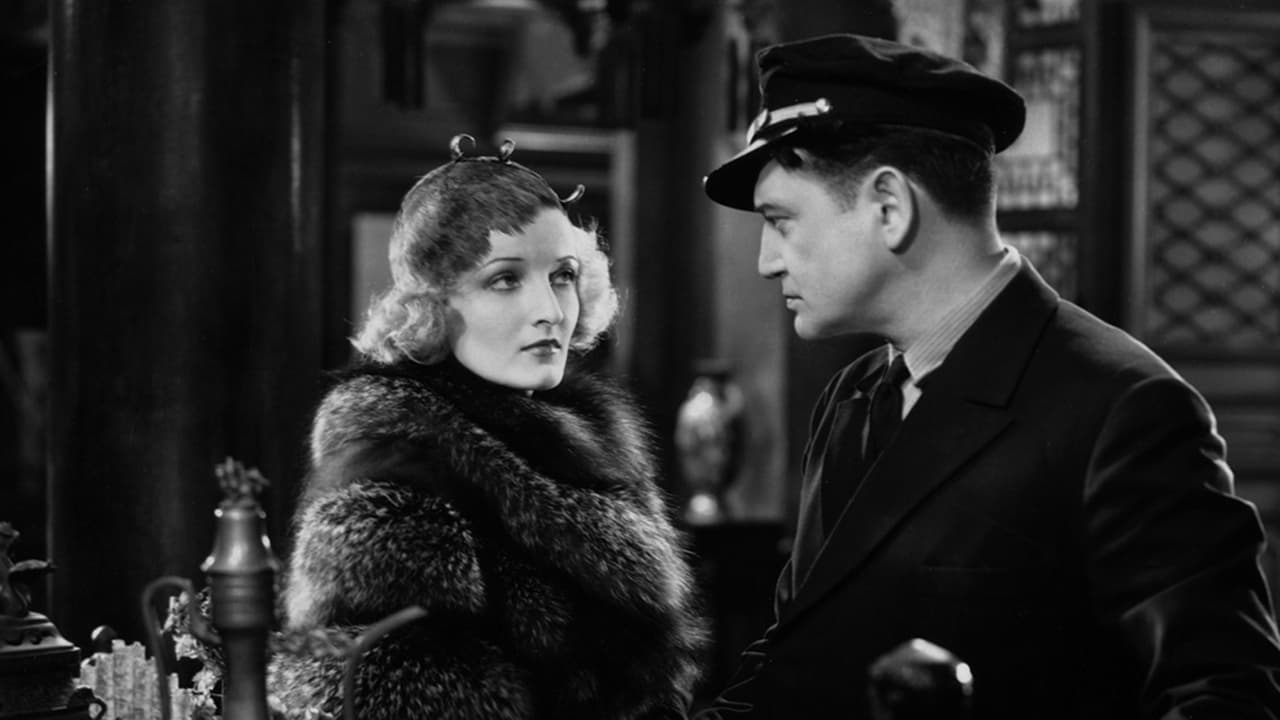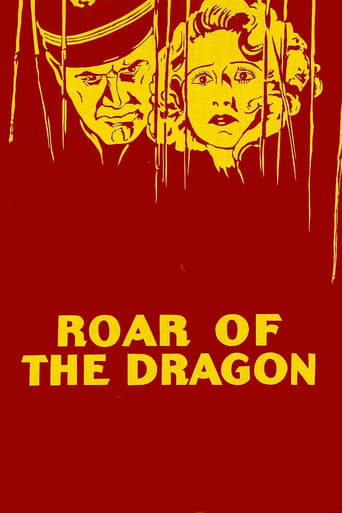

How wonderful it is to see this fine actress carry a film and carry it so beautifully.
... View MoreThis movie feels like it was made purely to piss off people who want good shows
... View MoreThe film may be flawed, but its message is not.
... View MoreThe film never slows down or bores, plunging from one harrowing sequence to the next.
... View MoreIt seems that Hollywood's initial view of Asian culture was not a very pretty one, with Tong Wars, evil war lords, and such characters as Fu Manchu to express the dark side of humanity. Getting away from Warner Oland and Boris Karloff as Fu Manchu here, the writers turn a Russian bandit (C. Henry Gordon in one of his many villain roles) as the bad guy, a bandit so vile that he even has forced an exotic beauty (Gwili Andre) to become his unwilling mistress. As the film opens, Gordon is spouting venom towards Richard Dix, a drunken hero, who apparently in combat bit his ear off. Gordon is obviously a tough guy because he can have the ear literally soldered back on with a hot iron (ouch!) without so much as a drop of whiskey or a pencil to bite on. Andre, looking very much like a combination of Dietrich, Garbo and Tallulah, is an exotic beauty, a shady lady of ill repute, and her presence is immediately unforgettable. She makes a determination to end this vile captivity as Gordon and his gang of various Asian races descend on Manchuria and the inn where she is being held against her will, even to the point of planning her own suicide should he arrive before she can escape.There's all sorts of other characters there, a sort of "Petrified Forest" gang awaiting their fate, and here, cowards become heroes, the greedy become noble, and some loose their lives as they become imprisoned in the inn where two of the bandit's men report every activity to Gordon and scheme to starve them out as rations and water literally evaporate. Edward Everett Horton is very good as the coward who ends up a hero, exploding in delight as he takes over a machine gun, while Zasu Pitts (the female version of Horton with her constant cry of "Oh, dear!") simply rings her hands and expresses her own fears. Stage veteran Dudley Digges (the villain of the original "Maltese Falcon") is notably self-serving as a pompous fool so convinced of his own importance that he doesn't mind seeing children thrown into the river if it means he'll be able to add more food to his already fat belly. But don't rule his character out from learning a lesson, and while it's never revealed as to why he changes, it's a nice surprise when he comes around to becoming a human being. The effeminate Horton even gets a slight romance with the sweet Arline Judge who becomes den mother to the many Chinese children trapped inside.Filled with lots of action, slight touches of comedy and more than its share of pre-code innuendo, this fascinating drama may not be the most politically correct (oh, that phrase...) of early Hollywood movies, and like many Asian set movies of the 1930's and 40's, some of the stereotypes are eye-raising and head-shaking. But as entertainment, it never fails to keep audience interest, beautifully photographed and never lacking in action and movement. It's even better than some of the most remembered Asian set films ("Shanghai Express" and "The Bitter Tea of General Yen") simply because the pace never slows to allow the audience to be bored. It's a good old fashioned nail biter, popcorn chewer and arm grabber of a movie, wonderfully directed by Wesley Ruggles and filled with moments you won't soon forget.
... View MoreThe most interesting thing about this movie is the collection of could have, should have moments that under the right direction and with the right script would have resulted in a much better adventure. A bit reminiscent of "The Sand Pebbles", the story has much potential which the dialog fails to deliver. Character development is all but nonexistent for a group of interesting individuals. And don't get me started on the pitiful editing. But what makes it worth a look is the collection of actors chosen for this turkey. Gwili Andre, the tragic Dane who chose fame by immolation, Arlene Judge, famous for her eight marriages, Edward Everett Horton in his most woefully miscast role. His wild-eyed intensity just doesn't translate well into heroic action. He just looks ridiculous. As for Andre, she had the looks but not the talent. The veterans, Richard Dix, Zazu Pitts, and C. Henry Gordon acquit themselves well as the true professionals they were despite the poor material they were given to work with. So there you have it. A pretty bad movie that's nonetheless worth a look.
... View MoreAlmost everything else I planned to say has been said by someone else here-- this is unusually zippy for a movie by the normally mediocre Wesley Ruggles, that big lummox Richard Dix is unusually animated and even amusing at times, the production design and cinematography are very handsome (and female leads Andre and Judge ain't bad to look at either), it's probably the only movie in which Edward Everett Horton handles a machine gun (although he does prove pretty handy with a pistol in 1938's Wild Money), and while the movie seems a bit underwritten (or more likely written in 3 days), it's pretty everything you could want from a 68-minute pre-Code B movie. The other interesting thing I would note is that it could have inspired bits in two much more famous movies-- the whole opening, in which news of a bandit's rampage is conveyed by telegraph until the moment that the bandit's men chop down the telegraph pole, plays like a dry run for the much more famous and accomplished opening of Stagecoach-- and it's hard to think that's an accident when you know that co-writer, and RKO producer during this time, Merian C. Cooper (of King Kong fame) would soon work with John Ford on The Lost Patrol (as well as on most of his immediate postwar work). The connection with Howard Hawks is less obvious, but when you consider the situation (tough guy Dix surrounded in compound with a bunch of people whose ability to defend themselves is doubtful), and then hear him refer to Arline Judge by a nickname-- the town she was from ("Bridgeport")-- and hear her answer in a deep, insolent Betty Bacall-Angie Dickinson drawl, there's a definite whiff of the much later Rio Bravo, in which John Wayne is holed up with a bunch of questionable help and a girl called Feathers.
... View MoreRichard Dix was excellent in this movie. I don't know if it was the direction or the fact that his character was drunk most of the time, but the improvement over the Secret Service a yr. earlier was very pronounced. He had subtlety, complexity and nuance here. In the earlier, he was very stagy. Never heard of Gwili Andre before (or since) but she was extraordinarily beautiful and she could act. She must have been a model. The whole cast was very good.
... View More